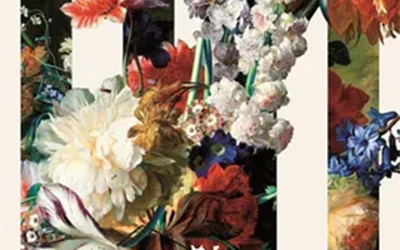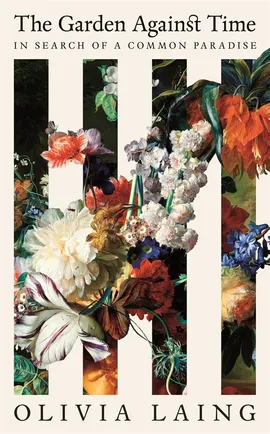
- Free Article: No
- Contents Category: Memoir
- Review Article: No
- Article Title: The secret garden
- Article Subtitle: Melding memoir and cultural criticism
- Online Only: No
- Custom Highlight Text:
The practice of making a garden is simple. Prime the soil, choose and arrange the plants, tend it, water it, enjoy it. The complications arise with the awareness of the cultural, environmental, and personal elements. Is it your land or are you renting it from a landlord? Is the soil tainted with lead or other contaminants after centuries of industrialisation? Are the plants you have selected meaningful to you or just modish markers of good taste and affluence? Will your curation withstand extremes of anthropogenic climate change or will the plants struggle and perish, become overgrown by the botanical bully boys that can adapt and dominate?
- Featured Image (400px * 250px):

- Alt Tag (Featured Image): Kate McFadyen reviews ‘The Garden Against Time: In search of a common paradise’ by Olivia Laing
- Book 1 Title: The Garden Against Time
- Book 1 Subtitle: In search of a common paradise
- Book 1 Biblio: Picador, $44.99 hb, 336 pp
- Book 1 Cover Small (400 x 600):

- Book 1 Cover (800 x 1200):

In those first months of the Covid pandemic, Laing reads Paradise Lost for the first time. The poem compels her to think about the idea of paradise, a word derived from ancient Persian, meaning ‘enclosed space’. In the desire for perfection and purity, and the inevitable enclosures and exclusions that paradise necessitates, she sees a determination to reclaim paradise in the vivid colours and salvaged treasures of Derek Jarman’s Prospect Cottage garden in Dungeness, built in the last years of his life as he was dying of AIDS. It is there, too, in Rose Macaulay’s blitz-scarred postwar novel, The World My Wilderness (1950), with its hope for botanical beauty (albeit wild and weedy) amid the destruction. Laing also acknowledges the ‘often misunderstood’ aspirational contradictions of William Morris, whose tireless idealism was bound up in both utopian socialism and the industrialisation that allowed factories to mass-produce his botanically inspired fabrics. She examines John Clare’s sorrow and grief at his expulsion from the Northamptonshire meadows, where he had found solace and inspiration for his poetry, as a consequence of the Enclosure Acts passed between 1760 and 1845.
Laing has a fondness for figures who have become unfashionable or neglected, or whose complexities trouble contemporary assumptions. In her previous books, she has written about the river Ouse and Virginia Woolf (To the River, 2011); writers and their relationship with alcohol and creativity (The Trip to Echo Spring, 2013); queerness and loneliness (The Lonely City, 2016); and the politics of bodies (Everybody, 2021). In each of these works she approaches her themes through a veil of memoir, seeking a cultural kinship of sorts. This melding of memoir and cultural criticism is almost a cliché now, but Laing’s books are memorable because of the felicity with which she chooses her subjects. She is inquisitive about all aspects of their work and doesn’t shy away from the parts of their lives that might be contrary or messy.
The Garden Against Time is similar in form to Laing’s previous works, but more cohesive and confident in tone. When she looks to past periods of upheaval, considering how artists and gardeners have imagined paradise, she reveals how the parcelling, labelling, and sequestering of paradise have left the commons both physically and politically bereft. She also examines the way the ideal of paradise is itself contentious. Milton’s political ostracism at the end of the English Civil War, as he was writing Paradise Lost, would influence his vision of Eden as much as his vision of Hell.
Laing is obviously knowledgeable about her subject matter. She is a lifelong gardener who has trained and practised as a herbalist. She has strong views about access to public gardens, and how class and race often determine access to gardens. ‘The fact that owning a garden is a luxury, that access to land itself is a luxury, a privilege and not the right it should be, is hardly a new phenomenon. The story of the garden has from its Edenic beginning always also been a story about what or who is excluded or cast out, from types of plant to types of people.’
Jarman’s garden had no fences; it grew in a harsh stony and salty environment, ‘so that the garden continually undid the distinction between cultivated and wild that a garden is meant to proclaim’. Laing shares Jarman’s love of variety and plant nomenclature. She also recognises that the instinct for noticing, naming, curating, and improving can be destructive, a never-ending quest for the new that contributes to gardens being out of kilter with the environment around them. It is her ability to recognise the garden as a multifaceted and thus potentially radical metaphor that makes this book so interesting. Milton’s principle that the rebel is more charismatic than the authority figure becomes a connection between romance and science – the queering of botanical prowess into a way to survive. The Garden Against Time is about the artistry of subversiveness and why beauty is worth pursuing.


Comments powered by CComment